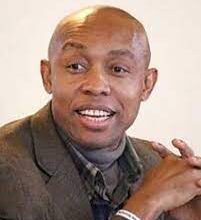Niger and the collapse of France’s empire

First, there was Mali; then came Burkina Faso. Today, in the epic saga that is the anti-Western revolt sweeping across the Sahel, it is the turn of Niger to play the protagonist — the third country to suffer a coup in just three years. On 26 July, a military putsch led by general Abdourahamane Tchiani deposed the country’s pro-Western president Mohamed Bazoum, elected in 2021 amid allegations of fraud and protests.
In each of these coups, the military officers involved cited the same reasons for seizing power: mounting concerns about a surge in terrorism and chronic social and economic underdevelopment. Despite being one of the world’s richest regions in terms of natural resources, including oil, gold and uranium, the Sahel is also one of the poorest financially. Niger is a striking example: it is one of the world’s leading exporters of uranium, yet consistently ranks towards the bottom of the Human Development Index.
________________________________________
In the eyes of these countries’ new leaders and their supporters, much of the responsibility for this lies with one villain in particular: France. They are, after all, all former French colonies, part of what used to be known as Françafrique. And more than any other imperial power, France has continued to exercise a huge influence over its former outposts, replacing outright colonial rule with more subtle forms of neocolonial control — first and foremost with currency.
Before Africa’s decolonisation in the Fifties and Sixties, it was common among Western powers to impose forms of monetary subservience on their respective colonies. The latter were generally forced to use currencies issued and controlled by the imperial centres, to ensure the European countries’ economic control and financial benefit. France was no exception; rather, what set France apart from other imperial powers was the fact that its monetary empire survived decolonisation. While most African colonies, upon becoming independent, adopted national currencies, France managed to cajole most of its former outposts in Central and Western Africa into maintaining the colonial currency: the CFA franc.
In the decades that followed, various countries tried to abandon the CFA system, but very few succeeded. As the Senegalese economist Ndongo Samba Sylla and the French journalist Fanny Pigeaud write in their book Africa’s Last Colonial Currency (which I translated), France did everything it could to discourage countries from leaving the CFA: “Intimidations, destabilisation campaigns and even assassinations and coups d’état marked this period, testifying to the permanent and unequal power relations on which the relationship between France and its ‘partners’ in Africa was based — and is still based today.”
The CFA franc, as a result, continues to be used by 14 countries, mostly former French colonies, throughout Central and Western Africa — including Mali, Burkina Faso and Niger. Together, they form the so-called “franc zone”, with France still playing a central role. Despite the formal “Africanisation” of this group, which involved transferring the headquarters of the CFA franc’s two central banks to the African continent, France continues to enjoy far-reaching control over the system — and the countries that employ it.
“More than simply a currency,” Sylla and Pigeaud write, “the CFA franc allows France to manage its economic, monetary, financial and political relations with some of its former colonies according to a logic functional to its interests.” They contend that the CFA franc represents a form of “monetary imperialism”, which hinders the development of African economies and keeps them subservient to France.
Consider Niger: the country is France’s biggest source of uranium (providing around 20% of its supply), which is needed to fuel the nuclear plants which provide roughly 70% of the country’s electricity. Yet, only one in seven Nigeriens (and just 4% of rural residents) have access to modern electricity services, while more than 40% of the population live in extreme poverty. Just as strikingly, 85% of the company that operates Niger’s uranium industry is owned by France’s Atomic Energy Commission and two French companies; only 15% is owned by Niger’s government.
The CFA system, and the lack of monetary and economic sovereignty it entails, is central to this systematic plundering of resources — in Niger and elsewhere in the Sahel. Of the 10 countries with the world’s lowest Human Development Index, five are part of the franc zone, including the three that have experienced recent coups.
Nor is France’s control over the franc zone limited to economic tools. Niger is also France’s main Sahelian military base, hosting around 1,500 French soldiers. To further complicate matters, the country is also home to around 1,000 US soldiers, one of the largest contingents of American troops on the African continent, operating under the umbrella of the United States Africa Command (Africom). Since 2013, the US has also been carrying out drone missions from several bases in Niger — including a recently constructed $110-million installation. For both France and the US, the purported objective is to fight Islamic terrorism; the reality, however, is that despite this massive foreign military presence, security in Niger and other countries has deteriorated over the years — as have their economic prospects.
Perhaps we shouldn’t be surprised, then, that Africa’s newest military juntas have singled out France as the main target of their ire. In Mali, the current military leader Assimi Goïta expelled the French army, cut diplomatic ties and even banned French as an official language. In Burkina Faso, the young revolutionary leader Ibrahim Traoré also expelled French troops and banned several exports.
For Sylla, this amounts to nothing less than “a second national liberation movement, which aims to bring to completion the decolonisation process which began in the Fifties and Sixties in Francophone Africa”. While the first stage of this process was about obtaining political independence from the West, this latest stage is about obtaining economic sovereignty and independence. This is why, as a recent United Nations report noted, popular support for these new military governments can be understood as being “symptomatic of a new wave of democratic aspiration that is expanding across the continent”. As Sylla told me: “In many of these countries, the militaries are seen as leaders upholding their nations’ sovereignty and independence, as opposed to elected governments, which tend to be puppets of the West and have done nothing to challenge the neocolonial order throughout the years.”
But what does this mean for Niger? For now, the country appears to be moving in the same direction as Mali and Burkina Faso. While the new government has stopped short (for now) of telling foreign troops to leave the country, it has revoked a raft of military cooperation agreements with France, closed the country’s airspace — effectively bringing to a halt US drone operations — and announced it is suspending the export of uranium to France. In response, thousands of people have taken to the streets to show their support, burning French flags and even attacking the French embassy. “Since childhood, I’ve been opposed to France,” a local businessman told the BBC. “They’ve exploited all the riches of my country such as uranium, petrol and gold. The poorest Nigeriens are unable to eat three times a day because of France.”
As if to prove his point, the Economic Community of West African States (Ecowas) — a political and economic union of 15 countries located in West Africa which has the support of the West — immediately placed sanctions on Niger, suspending all commercial and financial transactions between Niger and Ecowas countries and, even more ominously, freezing Niger’s assets deposited in the central and commercial banks of Ecowas. The reason they can do this is precisely because Ecowas contains the West African Economic and Monetary Union, which issues the currency used by Niger, and is largely under France’s control. This allows France to weaponise the CFA franc against any government that poses a problem for it within the franc zone. The EU has also reacted punitively, suspending aid and cooperation with Niger despite it being one of the poorest countries in the world.
More worryingly, the West African bloc said it would “take all measures necessary”, including the use of force, if the elected government was not reinstated within a week. That deadline expired on Sunday and no action was taken, but the threat has not been retracted. They are due to meet on Thursday to decide what happens next. Meanwhile, France, the EU and the US have all offered “unflagging” support to the ousted leader, and have backed Ecowas’s stance. This follows a decade of France using military force to defend its interests in Francophone Africa, intervening in the Ivory Coast, Mali and Chad.
But this is more than just a story about France’s waning hegemony and US military presence in the region. The Nigerien coup also threatens a $13-billion dollar project to build a gas pipeline connecting gas fields in Nigeria to Europe, which would pass straight through Niger. Following the EU’s decision to wean itself off Russian gas last year, this venture is arguably more urgent than ever.
The Nigerien military regime, for its part, has warned that any foreign military intervention in the country would result in a “massacre”, while Mali and Burkina Faso have both come out in support of the new government. Any military intervention, they warned in a joint statement, “would be tantamount to a declaration of war against Burkina Faso and Mali”, and “could destabilise the entire region”. Moreover, given Russia’s strong ties with the putschist governments, a Western-backed attack on Niger could easily mutate into what Colin P. Clarke has described as “a regional proxy war”, with Russia and the Wagner Group supporting Niger (and Burkina Faso and Mali), and Western countries supporting Ecowas.
All of which feeds into fears that we are on the verge of a new scramble for Africa, with Russia, China and the West vying for influence over this immensely resource-rich, young continent predicted to be the next frontier of growth. If this logic prevails, however, it will be a disaster for Africa. For as hard as it may be to fathom, Western countries — and France in particular — should accept that this anti-Western trend has much less to do with recent foreign influence than with historical grievances against long-running neocolonial practices. Any attempt to counter it with the same old recipe — financial blackmail and military force — will only strengthen the rebels’ resolve




